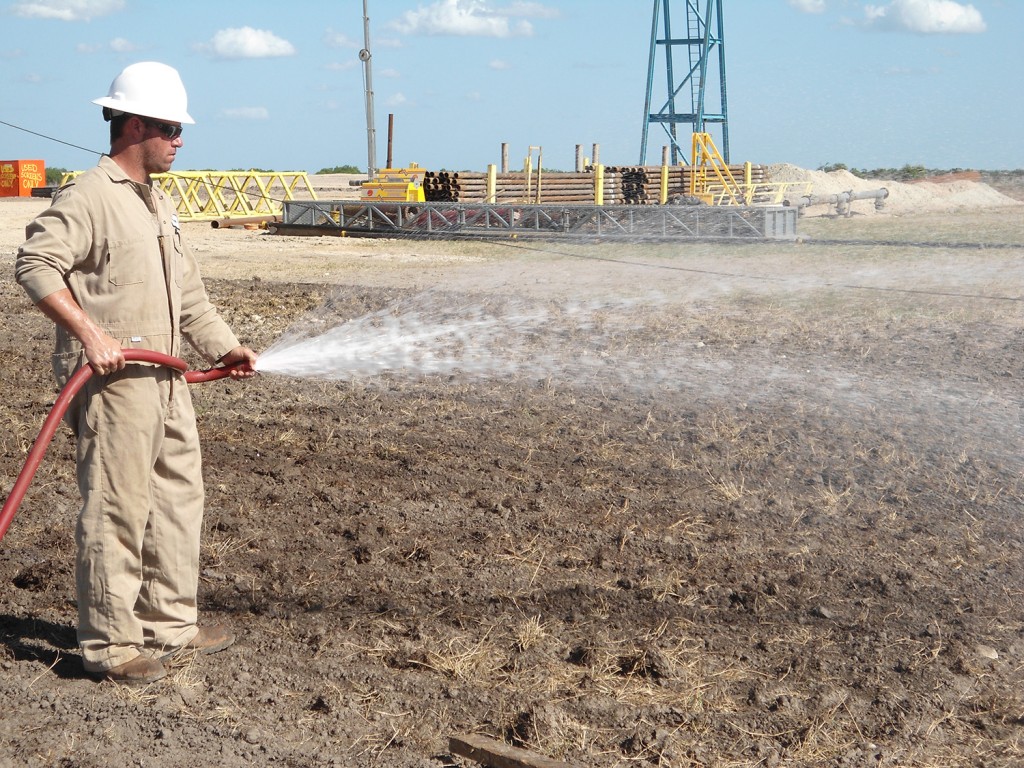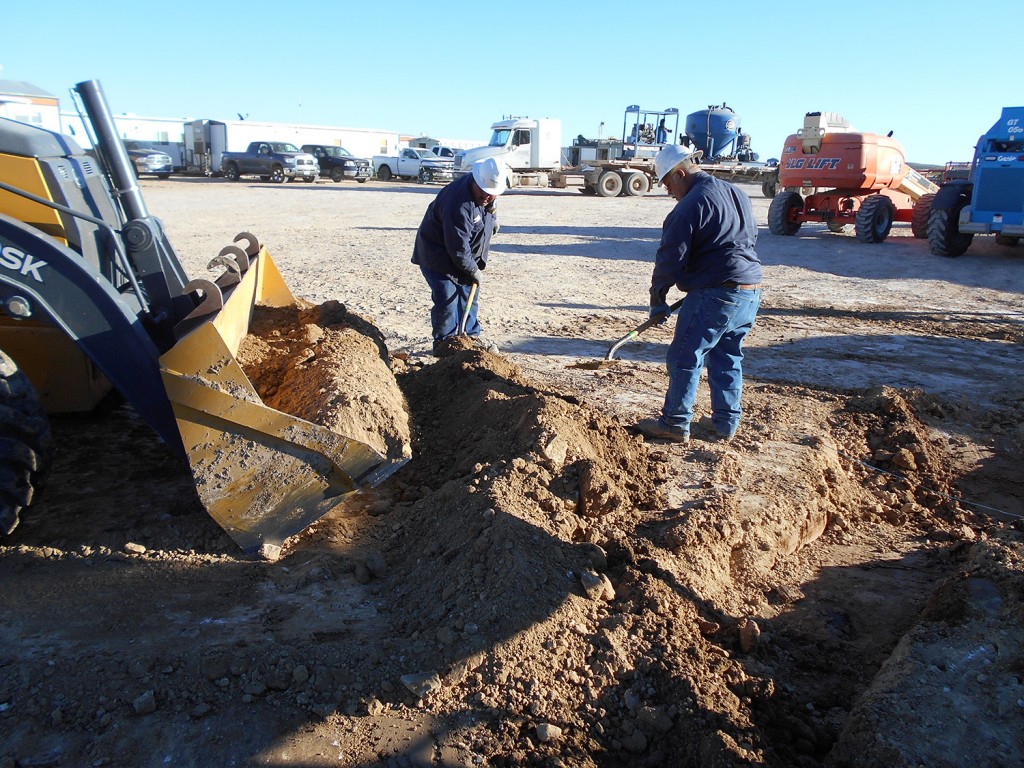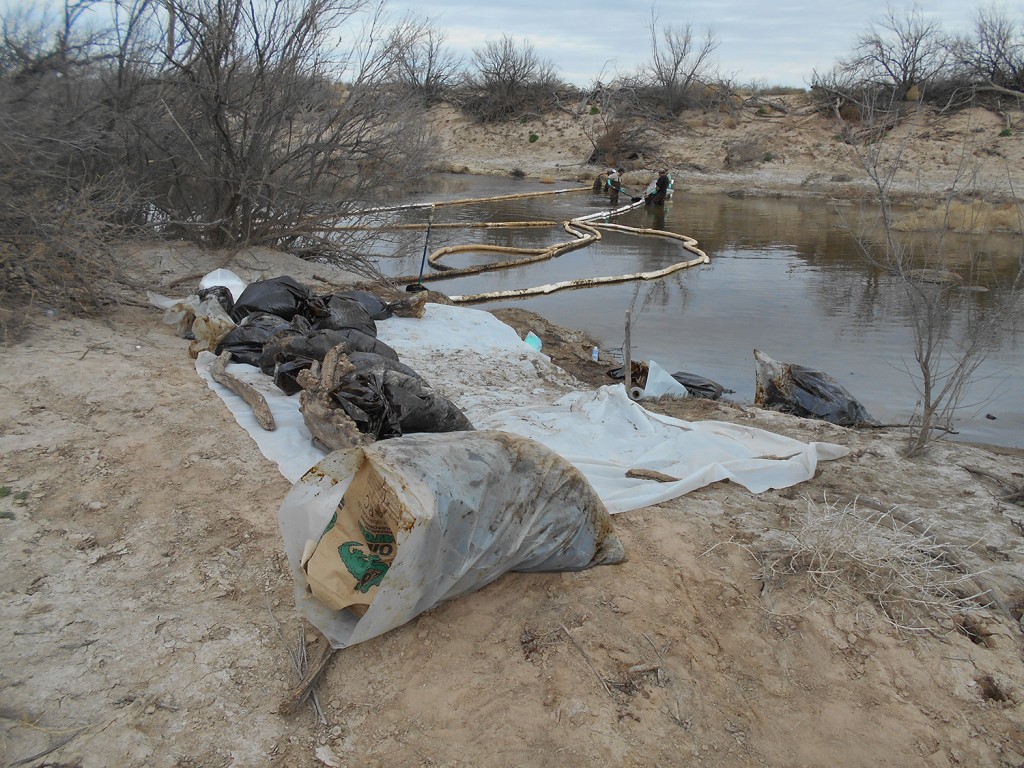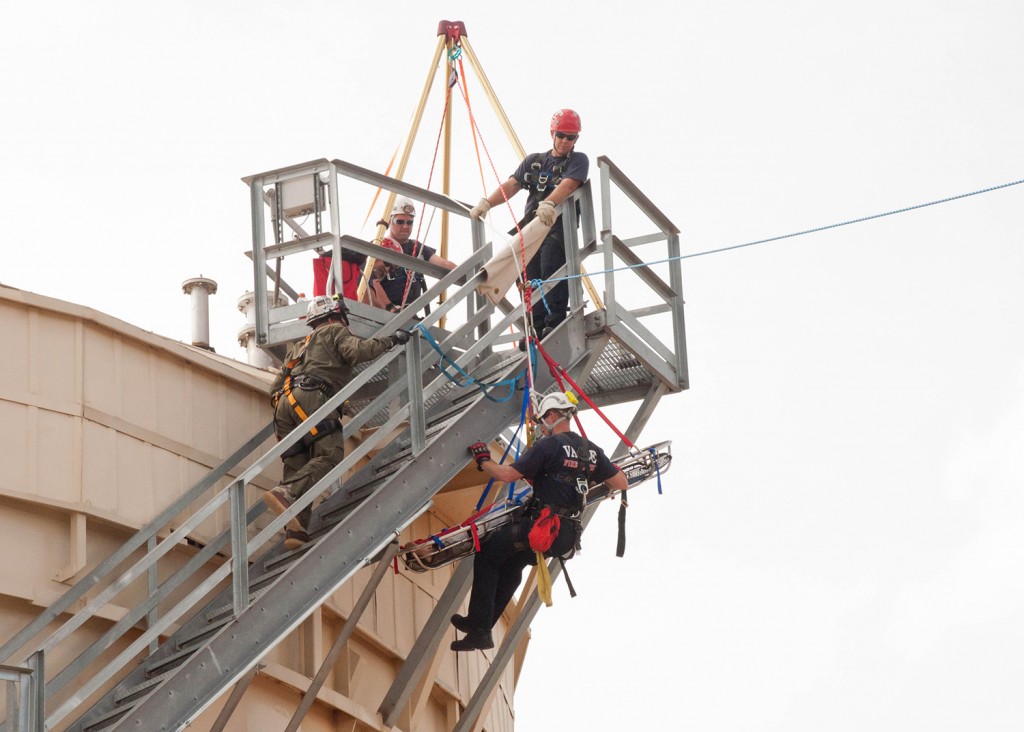Cleaning up the oil and gas industry is no easy task, but those in the environmental and waste disposal industries are always up for the job.
By Shanti Terry
Upon approach, the environmental industry may seem simple enough. If a spill happens, they clean it up. If there’s waste present, they get rid of it. In truth, there’s much more than meets the eye when it comes to the inner workings of this industry. Sure, at the end of the day, things like waste, spills, leaks and other such matters need to be addressed, but how they get cleaned, the manner in which they are addressed, is really the point of interest for all parties involved. Why? Because, in times like these, when the market isn’t exactly flourishing, quality companies that know the ins and outs of compliance for things like remediation and disposal are invaluable to the Exploration and Production (E&P) segment of the O&G industry.
The Parties Involved
To get the most up-to-date account of what’s happening in environmental services and waste disposal, PBOG tapped the expertise of two industry professionals: Tripp Collier of Enviro Clean and Gary Wallace of R360 Environmental Solutions.
Tripp Collier is the Field Services Manager of Enviro Clean’s branch in Midland, Texas. Enviro Clean is a privately owned consulting and field services company based out of Oklahoma. Collier described Enviro Clean as a turnkey company, because they offer a very wide variety of services, including 24-hour emergency response, salt water and oil spill cleanup, soil and ground water remediation, compliance, permitting, and other functions.
Gary Wallace is the Executive Vice President of R360 Environmental Solutions, based at the company’s corporate headquarters in The Woodlands, Texas. R360 is one of the nation’s leading environmental oilfield waste management providers. The company has branches in several states, each of them active and important drilling areas, including of course the Permian Basin. Wallace explained that R360 engages in transportation, disposal, and recycling of non-hazardous E&P waste streams. R360’s services include jobs like landfill disposal, land treatment processes, washouts, oil reclamation, and more.
About the Job
Collier painted a very clear picture of the sort of work that’s involved in the environmental industry, particularly spills and remediation. Though Enviro Clean is expanding its available services in the Permian Basin, the majority of the work they do, according to Collier, is remediation. “If a pipeline leaks, or a truck rolls over, we can respond and clean that up quickly and efficiently, meeting regulatory guidelines.”
Ah, guidelines—that simple word is what conjures up most of the challenges when it comes to addressing major incidents involving incidents and proper waste disposal for O&G and many other industries. Guidelines are the lifeblood of the environmental industry—revered, respected, and attended to very closely. Collier explained, “Guidelines are very dependent on who has jurisdiction. If you have an oil spill on a pad versus the side of the road, you’re dealing with two different regulatory bodies, so the rules are different.”
In Texas, the two regulating bodies are the Railroad Commission of Texas (RCC) and the Texas Commission of Environmental Quality (TCEQ). Each commission has clear-cut boundaries for regulating and responding to spills, air regulations and permitting, and waste. It’s up to companies like Enviro Clean and R360 to keep up with which commission handles what. For example, the releases of hazardous substances, refined petroleum products, and abandoned containers of unknown substances is TCEQ territory, but spills associated with exploration, development, and production of O&G is handled by the RCC. When it comes to air regulations and permitting, those actions that transpire during drilling and exploration activities are regulated by the RCC. Those activities that take place after drilling and at facilities like tank batteries are regulated by the TCEQ. For waste, the RCC has jurisdiction over wastes from transportation by pipeline and storage of crude oil before it enters a refinery, but not waste associated with transportation of crude oil and natural gas by railcar, truck, barge, or oil tanker and refined petroleum products by pipeline—that’s the TCEQ. Are you confused yet?
And things don’t stop at the mere existence of guidelines. Collier shared that landowners are involved when spills and other incidents occur on their property, and guidelines vary depending on the state in which the property exists. Texas has its rules; New Mexico has theirs and so forth. “A big part of our job is looking at where the spill happened and making sure that our customers met the correct guidelines based on where they are located,” said Collier. It’s no wonder why those in the environmental industry are of such crucial importance.
Companies can help out too, according to Wallace. When discussing the importance of managing waste, he cited the strategy companies use when working on sites could have an impact on eliminating their risk of non-compliance. “We see that operators are putting an emphasis on reliability and consistency. They want to manage their waste using the following value system: reduce the amount of waste that is created, recycle what can economically be recycled, and finally dispose. When it comes to disposal they want to make sure that every barrel is tracked and accounted for. One of the drivers behind this is liability.”
Methods and Technology
Wallace, who has been working in the environmental and disposal industry for his entire professional career, shared that he feels the O&G industry has always had genuine concern for the environment and it’s always been a priority. “The industry has always attempted to do what was best, but as you grow and mature, just as with anything else, you learn about what works best and what is most reliable.”
As for what is reliable, Wallace offered this: “The modernization of the industry, and the shale revolution, was fueled by technology. It’s this new technology that has created what you see today in our line of work. We are able to use a combination of both tested reliable methods and also new technologies, oftentimes in coordination with one another.” An example of what Wallace was referring to on the waste disposal end of the spectrum can easily be seen in R360’s R3 Roadbase. It’s a recycled product that allows for the conversion of stockpiled, environmentally treated E&P waste into energy efficient road base material. ]
For Enviro Clean, Collier gave insight into the way technology and past methods come together to work for cleaning up spills. He said that generally the best way to clean up is a combination of excavation, proper disposal, and backfilling. However, given the advancements in technology today and the fact that oil is itself biodegradable, there are other methods available to deal with spills, microbes in particular. “With spills, you add in products to chemically break down the hydrocarbon chains into smaller chains so that some of it can volatize. Then the soil is aerated. There are naturally occurring microbes already in the soils, and we can add microbes, which is also referred to as “adding bugs,” and they eat up the crude oil and break it down. That’s a lot of times a more cost efficient, effective solution we can provide for clients for remediating a site.”
According to Collier, the use of microbes is becoming more common, and there are many other products that can be can added as well. “Our Enviro Clean and Enviro Clean RTU products are actually a blend of surfactants which break down the oil,” said Collier.
Both Wallace and Collier agreed that though products and technology are vital, there is at least one other factor that come into play when success is the goal: properly trained staff. Properly trained staff can be the difference a well managed or mismanaged job. Staff need to know the proper protocol for handling emergency response situations anytime, anywhere. Wallace shared an incident where a problem occurred literally right at their company’s front door. “We had an incident in Louisiana where a truck carrying waste was headed to another disposal; it had an accident and tipped over right in front of our facility. Our guys went right to work and took the lead on the cleanup. We had it done in short order and protected the community and the environment. We have highly trained emergency response teams in every state we operate in.”
Collier described having highly trained personnel and experts in many fields as fortunate. He said it makes doing the job easier and helps to keep things in perspective at all times. “I have a long chain of resources to go to when an incident occurs. We go through extensive training, where seasoned experts are brought in who have done the work regularly. They train, not in a group of 30 new hires, but with 3 guys at a time. We do in-depth, hands-on training with each one of them, doing mock runs like rescuing someone from inside a tank, or suiting up and practicing containing a toxic chemical.”
Flowing With The Market
Even with expert staff, products, and technology, the environmental industry is not immune to the whims of the current market. Despite the importance of environmental services, when the market declines or sits stagnant, it still prompts the question: how does it impact them? Where R360 is concerned, Wallace maintains that “We are no different than other service providers. Our rise and fall is always closely related to the activity of our clients. However, we believe the size of our footprint, balance sheet, and subsequent ability to weather the storm has put us in a good position.”
At Enviro Clean, Collier said that the market does indeed have an impact on their business, but the company has been experiencing growth, especially in the Permian Basin area. “If the market picks up, we’re going to pick up, too. The more oil coming out of the ground, the more activity going on, then the more of a risk there is for mistakes to be made that will require our services,” said Collier. “Maybe it’s because there are less people doing more work. We have also expanded the number of services we offer here, so customers that used us for remediation the past can now also use us for waste disposal, air permitting, and other things.”
Why They Do It
As with all industries that deal with O&G, there are good times and bad times and the environmental side of things is no different. There are challenges they face everyday, but at the end of the day, the services they provide are indispensable. According to Wallace and Collier, that, plus a love of the work, is what keeps them going. When asked to elaborate on their choosing the environmental industry, they shared the following:
Wallace: “I grew up hearing family and friends talk about it, so it was natural that I would go into this line of work. We’ve seen so many changes and ups and downs. Now, in the present, we have seen paradigm shift in technological advancements, aided in part by new methods of horizontal drilling, increased automation, slick-water fracturing, and a modern rig fleet slowly replacing outdated units built decades prior. This combination of factors set the stage for one of the greatest runs the U.S. energy industry has ever seen. I love being a part of the modernization of our industry and am motivated by helping to solve our customers’ challenges.”
Collier: “You do what you can to help your customers out. Everyone is doing the best they can right now, and spills can be very costly. They require a lot of equipment and a lot of labor and it can run up a huge bill that clients aren’t prepared for. That’s the biggest challenge, but that’s the fun part, in my opinion. Figuring out solutions.”
Thoughts on the Future
As for the future of the environmental industry portion of O&G? As always, we’ll have to wait and see, but those in the industry will always have hopes and dreams about what they’d like to see happen. Collier shared that he’d like to see things more streamlined, with all of the districts getting on the same page about clean ups. Wallace said that he feels there will be continued momentum concerning environmental responsibility in the industry. In the meantime, he plans to continue to help with providing cost effective solutions for customers.
Shanti Terry has been a freelance writer/blogger since 2011. She can be reached via email at terryamoni@gmail.com.













